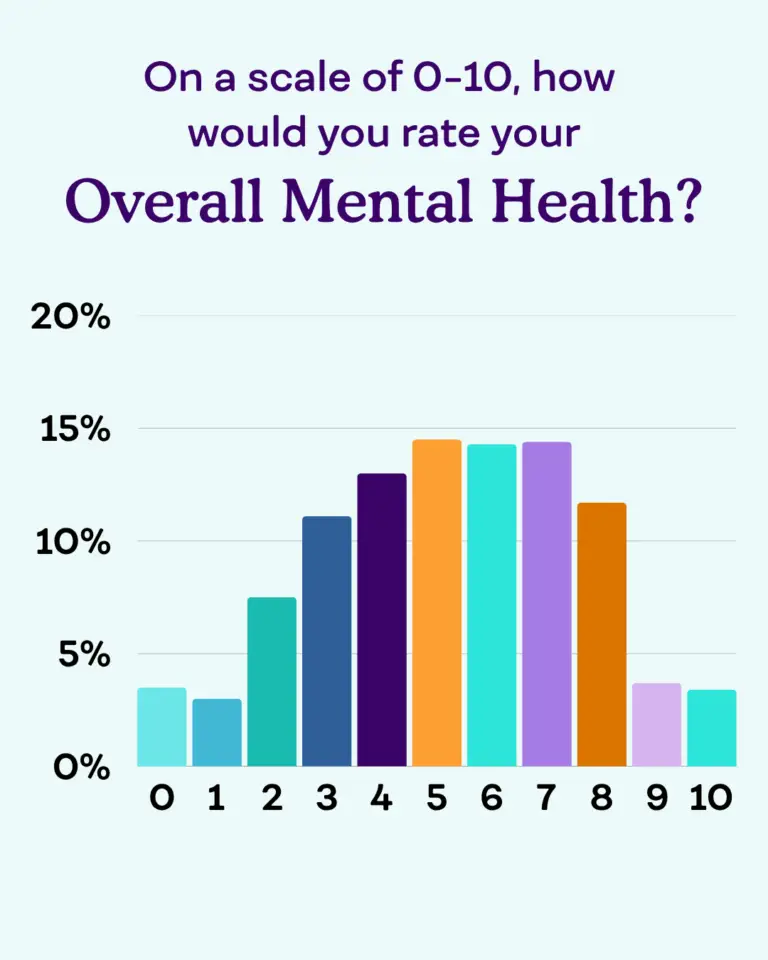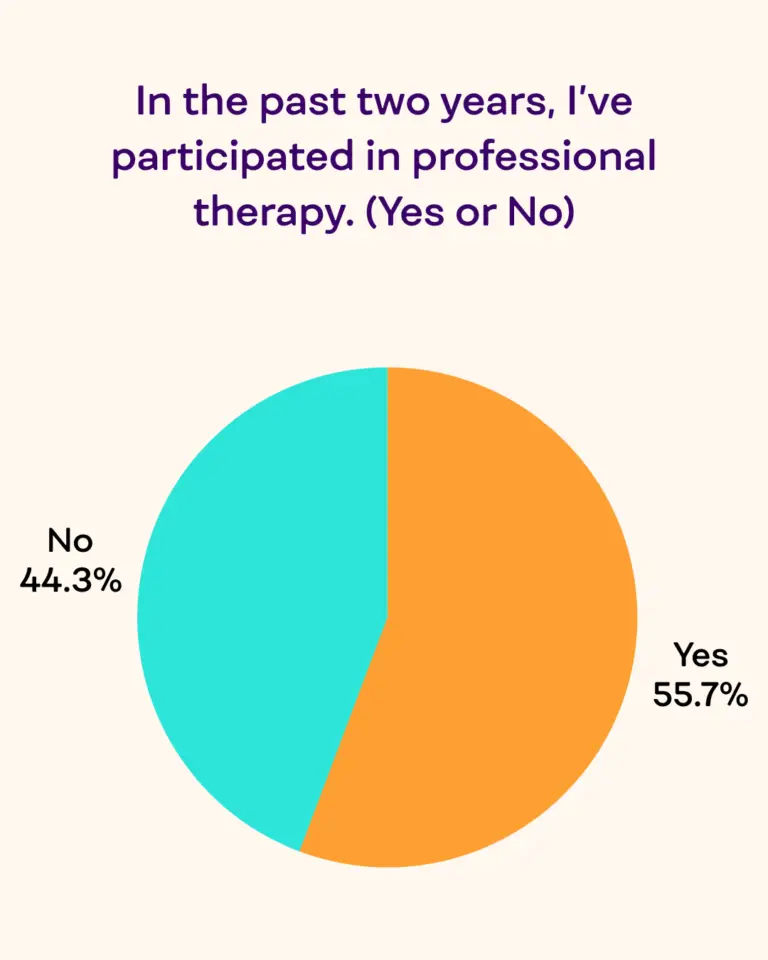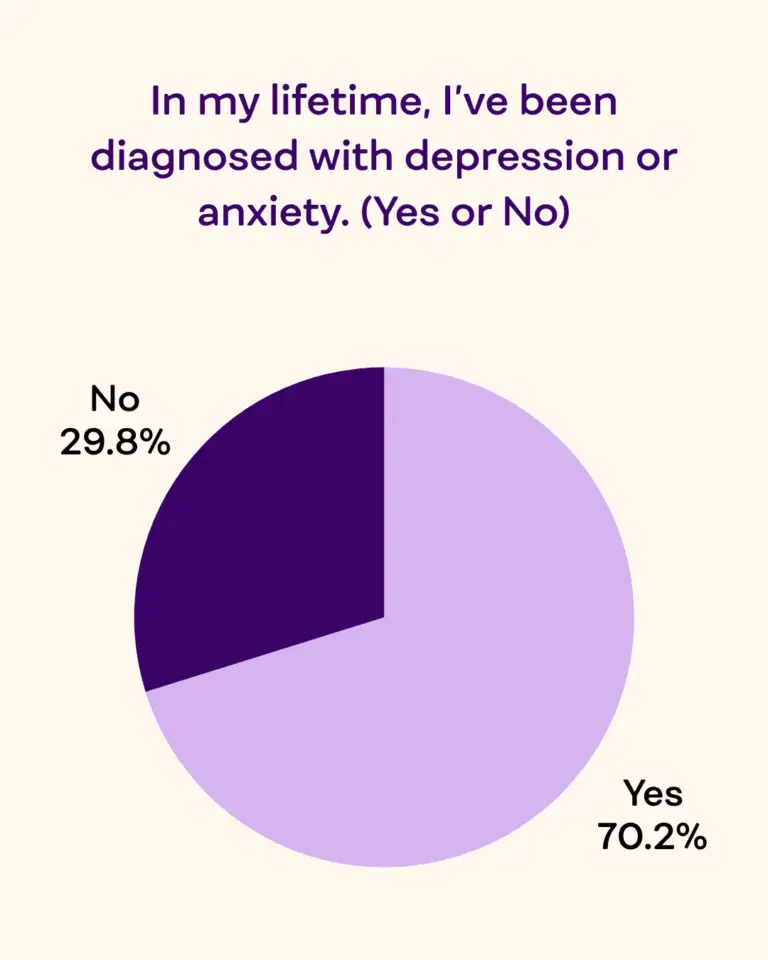How are you really doing? Talking about our mental health isn’t always easy. Whether you’re in therapy, thinking about it, or just trying to make it through the day, your mental health is something that deserves attention and care. At Plume, we wanted to better understand how the trans community is doing, what support folks have access to, and where the gaps are. So we asked.
Join thousands of trans and non-binary folks getting expert gender-affirming care with Plume.
Over 1,500 people responded to our trans mental health survey, and what we learned confirmed what many of us already know: mental health is a huge part of trans wellness, and there’s still a long way to go in making sure everyone gets the support they need.
Survey Results At A Glance
- 38% of trans respondents rate their mental health as low (0–4 on a 10-point scale).
- The average mental health rating across respondents is 5.2 out of 10.
- 70.2% have been diagnosed with anxiety or depression in their lifetime.
- 69.8% report struggling to find trans-competent mental health professionals.
- Those who can’t find gender-affirming mental healthcare rate their mental health over a point lower (4.87 vs. 6.07).
- Trans masc (4.95), Trans men (4.96), and Questioning (4.7) individuals report the lowest average mental health scores.
- 67.4% of therapy users still struggle to find affirming care, showing gaps even within access.
- Among those diagnosed with anxiety/depression:
- 62.2% have attended therapy in the past 2 years.
- 73.8% struggled to find a competent therapist.
- People with the highest mental health scores (9–10) tend to:
- Use therapy & counseling (23.1%)
- Exercise regularly (19.2%)
- Practice mindfulness or journaling (16.9%)
- Maintain healthy habits like diet and sleep (12.3%)
What We Asked
We wanted to know things like:
- How would you currently rate your overall mental health?
- Have you participated in professional therapy within the last 2 years?
- Have you ever been diagnosed with depression or anxiety?
- Have you struggled to find a mental health professional who has experience treating trans patients?
- How do you take care of your mental health?
What We Learned
A lot of us are struggling. On a scale of 0 to 10, the average mental health score was just 5.2. That’s not where it should be. In fact, nearly 4 in 10 people rated their mental health in the low range (0–4). Only 19% reported high mental health scores (8–10).

Therapy helps, but it’s not always accessible. More than half of respondents had been in therapy recently, but a huge 67.4% of them still said they had trouble finding someone who understands trans identities and experiences. That’s a real problem.
People who had a harder time finding trans-competent mental healthcare were also more likely to report lower mental health scores. The numbers back this up: those who said they struggled to find gender-affirming mental health providers had an average score of 4.87, while those who didn’t reported a higher average of 6.07.


About 70% of respondents said they’ve been diagnosed with anxiety or depression at some point in their lives. This speaks to how widespread mental health challenges are within the trans community, highlighting the urgent need for care that is both accessible and affirming. Having support that understands the unique needs and challenges often faced by trans and non-binary people can make a meaningful difference.

Some identities face steeper challenges than others. Trans masc folks, trans men, and questioning individuals reported the lowest average mental health scores. Non-binary folks and agender individuals weren’t far behind. These disparities remind us that even within the trans community, different groups face different struggles, and different kinds of support may be needed.
When it came to finding affirming care, trans masc folks had the hardest time. Nearly 8 in 10 said they struggled to find a therapist who truly gets it.
We also learned that the way we take care of ourselves matters, and it varies from person to person. When asked how people care for their mental health, common answers included social activities, hobbies, therapy, and exercise. When we looked at the folks with the highest mental health scores, we noticed a few standout patterns.
Among people who rated their mental health at 9 or 10, the top self-care methods included:
- Therapy and counseling (23%)
- Exercise and movement (19%)
- Mindfulness practices like journaling or meditation (17%)
Strong support systems like friends, family, or community (14%)
It’s a good reminder that mental health isn’t just about therapy or diagnoses. It’s also about the everyday choices we make and the resources we have (and don’t have) access to.
Why This Matters
Mental health care isn’t one-size-fits-all, especially for trans and gender diverse people. Too often, the care that’s available isn’t truly affirming or informed. And when that happens, it shows up in how people feel in their day-to-day lives. This survey gave us a clearer picture of where things stand — and where we can do better. At Plume, we’re taking this data seriously. We see the need for more accessible, trans-competent mental health care, and we’re actively exploring how to grow our services and strengthen our partnerships with affirming providers. Because everyone deserves to feel seen, supported, and well. And we’re committed to helping make that happen.



